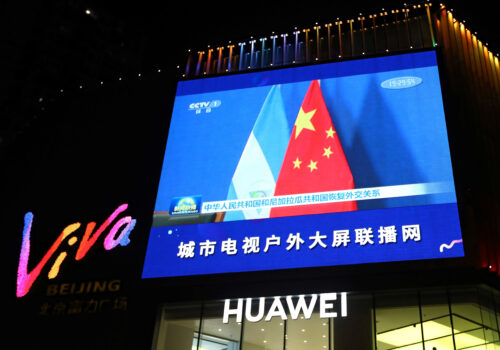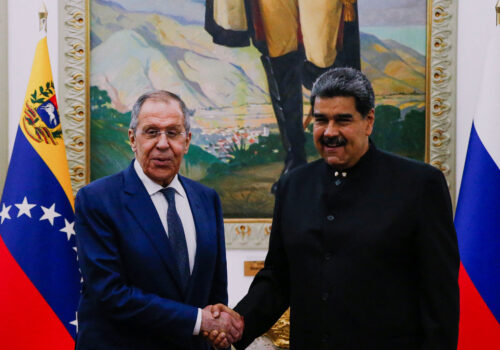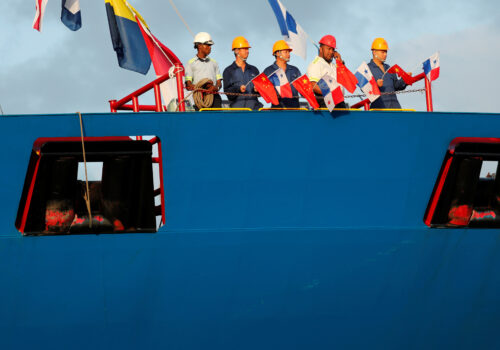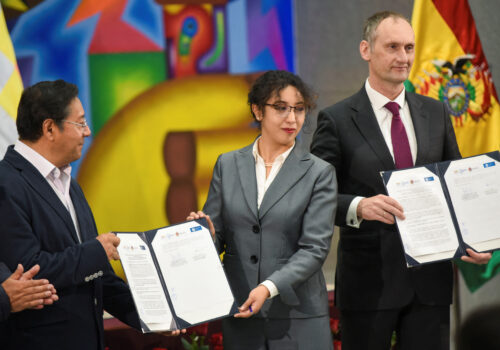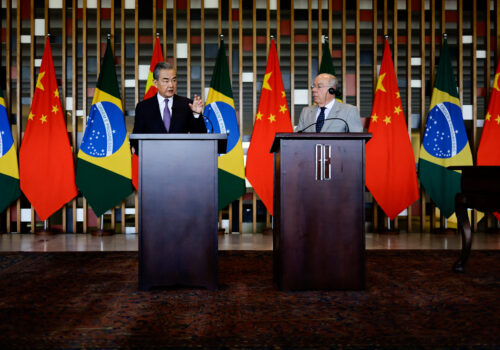How the United States can counter malign Chinese and Russian influence in the Western Hemisphere
The United States and its allies are engaged in a global strategic competition with China and Russia. The primary theaters for this contest are Europe and the Indo-Pacific, but China and Russia also are increasing their malign influence in the Global South, including Latin America and the Caribbean. Their malign actions threaten the United States in its own hemisphere and must be a high priority for US foreign and defense policy.
The United States must actively compete with Russia and, especially, China; otherwise, nations in the region may continue to be persuaded to prioritize engagement with these autocratic rivals over the United States in all or most sectors. Unfortunately, the US approach to the region has been marked by strategic errors, including a problematic lack of attention and inadequate efforts to use all tools of national power to compete with China and Russia.
The consequences of inaction are too high. What might start, for example, as a set of seemingly harmless infrastructure projects could end up with Chinese control of vital chokepoints for sea lines of communication, such as the Panama Canal. More broadly, a failure to act appropriately now will leave the region under the influence of America’s chief authoritarian rivals.
China and Russia have different goals and capabilities in the region. China seeks to leverage its economic power to increase its influence in the other areas of competition, with significant success to date, whereas Russia continues to support anti-American authoritarian regimes militarily and spread disinformation throughout the region to undermine US interests. China’s economic engagement often aims to cement access to resources or shift the policies of countries in the region: guaranteeing access to critical minerals in Peru for example, or pushing countries to loosen ties with Taiwan. China also operates spy stations in Cuba and has a hand in the US fentanyl epidemic that continues to cost tens of thousands of lives, with chemical precursors reaching Mexico via China. Russia, for its part, has pursued military partnerships with Cuba, Venezuela, and Nicaragua, including sending Russian forces to the region.
In addition to Chinese and Russian malign influence, however, the region also presents many opportunities for the United States to cultivate fruitful partnerships in the western hemisphere built on shared values. Outside of Europe and North America, the western hemisphere has boasted the highest proportion of democratically elected governments for the past three decades. Most of the population of the region lives in a democracy, and support for democracy remains high. There is a window of opportunity for a renewal of regional commitments to democracy and reform that the United States can—and should—capitalize on to reorient its relationship with the region.
Moreover, Latin America is home to major multinational firms that play a growing role in the global economy, and Panama Canal serves as a vital transit point for US and global trade. The region’s diverse and dynamic commercial landscape presents a compelling opportunity for mutually beneficial economic partnerships. On top of that, the region is rich in biodiversity, and regional partners could play a vital role in transitioning to clean energy and a green economy.
To address these challenges and opportunities, the Atlantic Council launched an eighteen-month project spearheaded by the Atlantic Council’s Scowcroft Center for Strategy and Security in collaboration with the Adrienne Arsht Latin America Center. The project included a working group of experts, strategists, and former US and Latin American officials that met for three workshops. In addition, we commissioned five background papers that have been published alongside this final report. The project benefited greatly from the insight, experience, and expertise of the working group, and the authors are grateful for their input.

The Scowcroft Center for Strategy and Security works to develop sustainable, nonpartisan strategies to address the most important security challenges facing the United States and the world.

The Adrienne Arsht Latin America Center broadens understanding of regional transformations and delivers constructive, results-oriented solutions to inform how the public and private sectors can advance hemispheric prosperity.
Image: Flags of Venezuela and China flutter over Tiananmen Square during Venezuelan President Nicolas Maduro's visit, in Beijing, China September 12, 2023. REUTERS/Florence Lo
